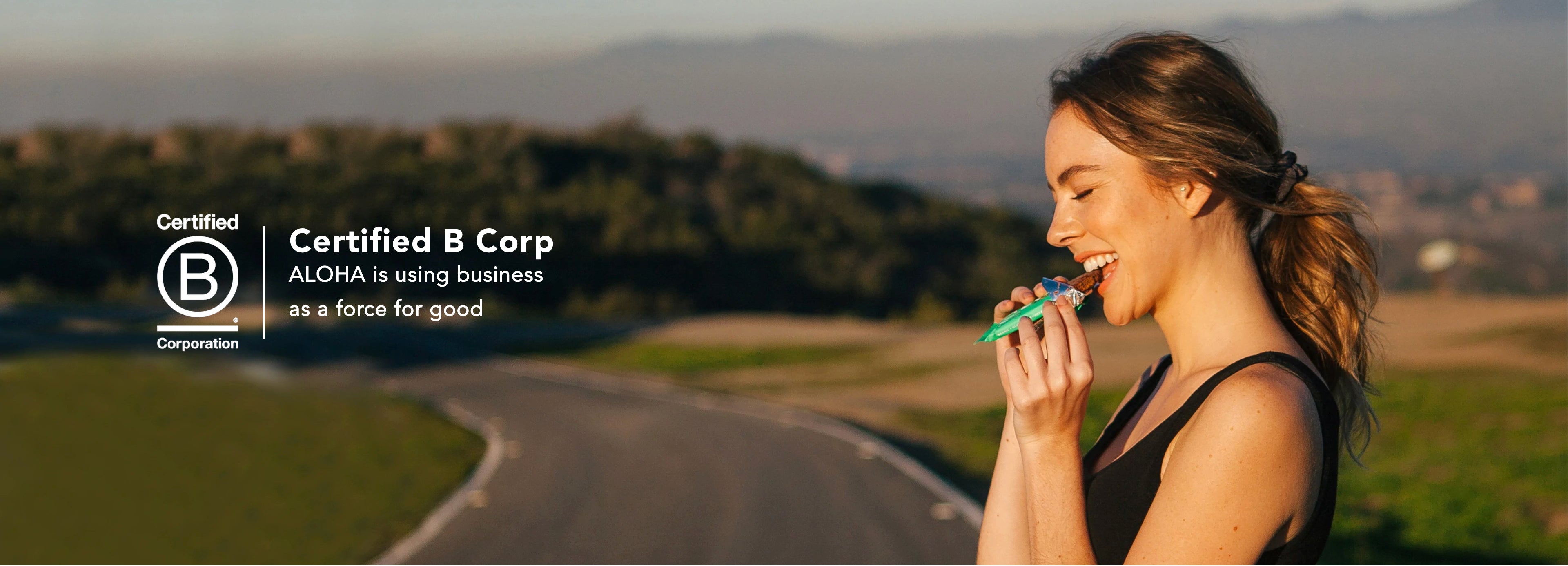When Kendall and Justine Barber founded Poppy Barley in 2012 they had sustainability in mind from the start. The co-founders toured countless factories in Mexico to find the right production partner that aligned with their values. Eventually, they did.
The socially and environmentally conscious Canada-based fashion company—which produces leather shoes, bags, accessories, and home goods— teamed up with a factory in León, Mexico. Poppy Barley paid the artisans significantly more than the local wage. The company went on to provide post-secondary scholarships for the children and grandchildren of its Mexico-based team members. This was the beginning of a long-term partnership that embodies how Poppy Barley does business.
Whenever we’re making decisions, we always think of the most sustainable way we can make it happen. If there’s steps that we can take to make it better for the planet, or better for people, then we choose that route. It’s a filter that we constantly think through.
Online shopping and social media purchasing have ushered in an age of unlimited options, making it harder for companies to build lasting relationships with buyers. Companies can make one-off sales but find it challenging to create long-term customers. Leading with your brand values enables your business to capture the attention of customers and distinguish yourself from competitors.
According to the 2022 Future of Commerce report—a study conducted by Forrester on behalf of Shopify—53% of companies are making improved sustainability one of their top priorities for 2022, and 39% are improving efficiency in manufacturing processes.
On the consumer side, customers are increasingly concerned about the companies they support with their money. While words like “sustainability” are increasingly a marketing buzzword, many consumers aren’t satisfied with greenwashing. Instead, they’re doing the research to see whether a company’s claims are authentic or simply advertising. Buyers are more environmentally and ethically conscious than ever, opting to buy from businesses that align with their personal values.
A decade later, Poppy Barley has not wavered in its mission to build a company that provides “luxury for the people” while having a positive impact on the world. In fact, its mandate has only expanded. Today, it’s a certified B Corporation with a dedication to “business for good.” “Whenever we’re making decisions, we always think of the most sustainable way we can make it happen,” says Marina Eckert, Poppy Barley’s Social and Community Lead. “If there’s steps that we can take to make it better for our planet, or better for people, then we choose that route. It’s a filter that we constantly think through.”

The company focuses on ethical production, using responsible materials and sustainable packaging. Its products are built to last to reduce waste, and the business is a vehicle to empower people and protect the planet. Since 2018, the company has donated the profits from its busiest shopping day, Black Friday, to organizations like the Lois Hole Hospital for Women, The Nature Conservancy of Canada, and Water First.
People choose our company because we act with these values in mind and try to articulate them well.
Poppy Barley is a quintessential example of modern businesses establishing brand values and living by them. But more and more companies are catching up, putting brand values like sustainability and ethically sourced goods at the center of their business.
According to the Future of Commerce report, consumers are four times more likely to purchase from a company with strong brand values. “Oftentimes, I find that customers interact with us and say, ‘I love your company. And I love your values. What you stand for is awesome,’” says Eckert. “People choose our company because we act with these values in mind and try to articulate them well.”

In this article we’ll dive into what brand values are, how to establish them, and the benefits of running a values-centered company, with examples of values-first businesses that lead with both head and heart.
Table of Contents
Understanding brand values
Brand values are more than creatively drafted copy on a landing page or pithy lines on product packaging. At their core, brand values are the key principles guiding how a company operates—including where it sources its products, how items are delivered to customers, and the way employees are treated. Brand values define precisely how a company operates, achieves its mission statement, and earns money.
We’ve developed five brand values over the past years. They’re defined enough that we can look to them in our everyday business activities, as well as when we make decisions for our company.
Brand values are the uncompromising principles a company will uphold as it grows, even in the face of alternative paths to earn more profits or win more customers. “We’ve developed five brand values over the past years. They’re defined enough that we can look to them in our everyday business activities, as well as when we make decisions for our company,” says Eckert. Essentially, brand values are how a company shows up to the world, even when nobody’s watching.
Company case study: Poppy Barley’s brand values

What do brand values look like in action? Poppy Barley has five brand values that extend to every corner of the company: 1) Inspiring connections 2) Product excellence, 3) Business for good, 4) Rethinking every step, and 5) Uniqueness is powerful.
The company is also intentional about stating how their brand values are achieved. Get a glimpse into how Poppy Barley defines their brand values:
INSPIRING CONNECTIONS
Inspire connection between people, products, and community.
- Share the story behind Poppy Barley.
- Empower ourselves and customers with knowledge.
- Speak in a brand voice that is confident, inclusive, intelligent, and fun.
PRODUCT EXCELLENCE
Ethically and sustainably create products people love and wear repeatedly.
- Our products work for 80% of life.
- Sustainable, progressive materials and manufacturing.
- Comfortable and beautiful.
- Designed and made for longevity.
BUSINESS FOR GOOD
Balance profit and purpose
- People and Planet Targets & Reporting
- B Corp certification meeting the highest standards of verified social and environmental performance, transparency, and accountability.
- Commitment to philanthropy.
- Push for progress, not perfection.
RETHINKING EVERY STEP
Innovate to find a better way.
- Be brave, creative and resourceful.
- Question everything and embrace agility.
- Always in progress.
UNIQUENESS IS POWERFUL
Different perspectives and experiences are powerful.
- Challenge our biases.
- Create a PB world that is reflective of our communities.
- Practice perspective of vital listening, learning, and collaboration.
While your company’s brand values should be expressed and executed in the way that makes sense for your business, here are a few generalized examples of brand values that can drive how a company operates:
- Ethical sourcing and manufacturing. By being intentional in where and how materials and products are sourced and manufactured, entrepreneurs can side step exploitation in favor of empowerment.
- Environmental consciousness. From sustainable packaging to being carbon-neutral, companies can operate with an Earth-first attitude.
- Products built to last. By eschewing fast fashion in favor of long-lasting goods, businesses can sell products that stand the test of time.
- Diversity and inclusion. From the range of people a company recruits to who they make their products accessible to, companies can change the status quo.
- Operational transparency. Giving customers the behind-the-scenes look into how they operate keeps companies accountable while also giving individuals information to make better buying decisions.
- Giving back to the community. Businesses often benefit from the communities they’re embedded in. Companies can give back through donations and volunteering.
- Caring about customers. From providing buyers with high-quality products to maintaining a line of communication with customers, businesses can prioritize the customer experience.
Often, these brand values are compelling to consumers, too. Fifty-two percent of global shoppers are more likely to purchase from a company with shared values. By establishing brand values and upholding them, companies can put their best foot forward and attract consumers who are compelled by the same values—from reducing waste to operating with integrity.
The benefits of running a company that centers brand values
Running a company that has enduring brand values can be a strong differentiation in the market for businesses seeking to build a lasting relationship with customers. For example, 77% of consumers are concerned about the environmental impact of the products they buy.
But it’s not just customers who care about brand values—employees do, too. Studies show that businesses with better environmental standards and corporate responsibility typically have higher productivity and lower staff turnover. Establishing brand values can be a magnet that attracts both loyal customers and mission-aligned team members.
Curious about starting a company that leads with brand values? Start your free 14-day trial on Shopify.
Attract new customers
Customers are increasingly on the lookout for products that align with their values—whether they’re shopping for footwear or fabric softener. Studies have shown a 71% rise in online searches for “sustainable goods” globally since 2016. Consumers are willing to put in time to research businesses that build with sustainability in mind. “From analyzing our traffic referral sources, we’re included in a lot of sustainable Canadian accessories directories,” says Eckert. “There’s lots of blogs that round up sustainable companies, and I find our company on these quite a bit,” she adds.
By establishing and sharing your company’s brand values, you can get on the radar of socially and environmentally conscious consumers on the search for better businesses.
Build brand affinity and loyalty
When products are a Google search or Instagram click away, it’s increasingly difficult for companies to retain long-term customers. However, leading with brand values can help businesses build a brand—turning one-off purchases into years, or even decades, of company loyalty.
According to the Future of Commerce report, sustainable business practices appeal to customers, investors, and employees. These practices can help customers maintain more emotional relationships with brands, resulting in a 306% higher lifetime value. Aside from customers making individual buying decisions based on their values, other studies show that there’s a psychological “feel good” factor to environmentally friendly purchases, while still other studies suggest there’s also a social factor to sustainable consumption. When companies are purpose-driven, it gives customers a range of reasons to keep coming back.
Attract and retain employees
Many job seekers are looking for more than just a paycheck. Instead, they’re keen to spend their 40+ hours a week working on a mission they find compelling and important. For instance, 56% of professionals report being more likely to stay in a company with a sound sustainability agenda.

By developing brand values—and even co-creating them with your employees—you can build a mission-aligned team that’s steadfast in executing a company’s brand values, whether that’s picking sustainable suppliers or finding ways for your business to meaningfully give back.
Improve business operations
Cutting operational corners can be a tempting choice for businesses to save money and maximize profits. But increasingly, businesses are favoring “fair” over “cheap” and opting for better business practices, including vetting factory conditions and ensuring safe and ethical operations for overseas labor.
Twenty-five percent say one of their biggest supply-chain-related concerns is ensuring manufacturing partners employ ethical and fair labor practices. Additionally, more than 33% report taking a more holistic approach to sustainability in the year ahead, including distancing themselves from partners that don’t meet their sustainability standards. Businesses have their eye on the future of the planet and are planning their operations for long-term sustainability rather than short-term profits.
Stand out from the competition
Having strong brand values can differentiate your company from the competition. Rather than a race-to-the bottom, where companies compete on pricing, businesses can compete on brand values instead.
According to the Future of Commerce report, in the past year, 44% of customers chose to buy from brands that have a clear commitment to sustainability, while 41% chose to buy from brands that have a clear commitment to social causes. Brand values like sustainability and social consciousness can set you apart from companies in the same category and win you more customers.
How to find your brand values
Coming up with the brand values that guide your business is more than copying and pasting corporate promises from another company’s website or doing a quick Google search for “popular brand values.” Developing your brand values should be unique to your individual company, what do you want to achieve, and how you decide to get there.
While strong and intentional brand values may attract conscious consumers, ultimately brand values must stem from what is realistic and achievable for your individual company. “Right now we’re working on a full carbon evaluation of our business activities. Make sure you’re actually carrying out the activities that you say you are, and that you can use those facts to back it up,” says Eckert.

There may be a gap between where you want your company to be in terms of your brand values and where it is now. Highlight how your company abides by your brand values today, while sharing your intentions for how your business practices will evolve for tomorrow.
Take stock of what matters
Often a business’ brand values can stem from an entrepreneur’s personal values. How a company does business—the way it operates, how it manufactures products, and its hiring practices—can be a manifestation of what matters to a company’s leaders. To take stock of what matters to you as a business owner, consider these questions:
- What impact do I want to have on the world?
- What bothers me about how other companies operate?
- Who are the individuals and companies that inspire me?
- How can I use my company as a vehicle for change?
- What values do I want to inspire in others?
- What changes am I willing and capable of making?
These questions can kick-off brainstorming brand values that guide your company—whether you’re starting your business or rethinking years of operating. It’s never too late, or too early, to assess what matters to you and how your business can embody those values too.
Dig into your company pain points
Try as you might, your business won’t be perfect. But developing brand values can hold you and your company accountable, helping you aim toward better business practices. Dig into your business, searching for pain points that can be translated into brand values. Here are a few questions to kick-off exploring for areas of improvement:
- Where did we fall short last quarter operationally? Last year?
- What critical feedback have we seen from our customers?
- What issues are consistently raised by employees?
Think of business shortcomings as opportunities for change and a chance to develop and execute on brand values that transform your business.
Decide on your values as a collective
While brand values might stem from the founder of a company to start, it’s likely they’ll evolve over time as your company grows and expands—including adapting to reflect some of the values of the people who join your company.
It’s not realistic to have an ever-growing list of brand values that are impossible to truly establish and implement. However, as a leader, take into account how your brand values can expand over time to reflect your growing business. By co-creating and collaborating on brand values with the people at your company, employees will be more inclined to carry out these brand values through their work.
Borrow from great brands
While brand values should be unique to your company, and implementing them will depend entirely on the context of your business, it’s OK to get inspired by other companies. In fact, industry analysis is important to understand both what your competitors are doing and what values consumers in your industry care about or even see as non-negotiables. Some of the best businesses aren’t only innovative in their products, but in how they operate ethically and sustainably.

These businesses set an example of how strong brand values can change the world and inspire others:
- Poppy Barley crafts its products for maximum wear, allowing consumers to “buy less and buy better.” It also holds itself to ethical production, allowing workers the right to unionize and providing them with a safe working environment, equal pay for equal work, and a living wage with health benefits.
- Patagonia commits 1% of its sales to environmental groups and has brand values like “cause no unnecessary harm” and “use business to protect nature.”
- Aloha is employee-owned, certified organic, and non-GMO project verified. It uses its profits to support a variety of organizations, like Conscious Alliance, Social Fire Farm, Social Works, and more.
- Encircled is transparent in its manufacturing process and uses sustainable fabrics and low-impact dyes. It pledges to “put the planet and people before profits, always.”

Get inspired by companies with strong brand values that extend beyond their advertising and into how they truly operate as a business.
Living your company’s brand values
Establishing your company’s brand values is one thing. Actually implementing them and operating with them in mind, day to day, is quite another. According to the Future of Commerce report, 41% of brands plan to be more transparent about their social impact’s vision, goals, and progress. But how do you move from plan to action?
Go beyond drafting your brand values in a Google doc by embedding them in your business—keeping them front of mind internally, communicating them to customers, and even making it official through certifications.
Embed them in your business
Your company’s brand values should aim to touch every part of your business. If one of your brand values is sustainability, consider if sustainable practices are baked into how you operate as a business—from the kind of materials you use for products to your company’s customer return policy.

Here are a few ways to integrate brand values into your day to day:
- Company operations. Beyond customer-facing facets of your business, consider how your brand values can show up in the daily operations of your business—from the companies your partner with for shipping supplies to employee perks like volunteer days.
- Customer policies. Extend your brand values to how your business interacts with customers. For instance, do you have an after-sales policy that includes repairs to minimize waste?
- Employee assessment. Assess, acknowledge, and promote members of your team based on how they embody and encourage the execution of brand values at the company.
Assess different areas of your business—supply chain, hiring practices, customer care—to ensure that your brand values are a constant throughout your company.
Make them front and center internally
When it comes to communicating what’s important, there’s no such thing as too much repetition. Keep your company’s brand values top of mind by design, by highlighting them in physical and digital spaces. Here are a few places to keep your brand values present:
- Workspace presence. If you have a central headquarters where employees work, consider displaying your brand values at the entrance or in a boardroom.
- Employee onboarding. Walk through and explain your brand values to new employees when they join the company.
- Company documentation. Have a document or file where your brand values are housed that everyone at your company has access to.
- Digital bookmarking. If you use a team communication application like Slack, pin your brand values to one of your most frequented channels.
- Meeting openings. During important meetings, like quarterly all-hands team calls, open the meeting by discussing the brand values to guide your meetings.
Being reminded of brand values, and giving them a weight of presence, will help your team keep them at the forefront of your business.
Communicate them to customers
To attract prospective buyers and forge long-term customers, communicate your brand values across marketing touch points. Poppy Barley’s commitment to brand values like sustainability, is clear whether you’re on its website or browsing its Instagram account.

Here are a few places where you can communicate your brand values directly to customers:
- Website. Use your digital storefront to tell your company’s story, including using your About Us page to communicate your brand values and why they’re important to you and your business.
- Packaging. Consider brand storytelling through your packaging, using icons and text that describe what matters to your company at a glance.
- Marketing. Consistently remind your audience of your brand values, mentioning them across social media and email marketing.
Conscious consumers inspired by your brand values will feel more inclined to choose your company for their buying needs.
Make it official
While your company can informally do good in the world, consider making it official with a certification, like becoming a B Corporation. B Corporations, certified by B Lab, are given to companies that meet high standards of social and environmental performance, accountability, and transparency.
Poppy Barley is a Certified B Corporation and considers “purpose, people and profit” when making decisions. “Every couple years, we need to resubmit our application to make sure that we are still living true to that,” says Eckert. “So that’s one way to check yourself and make sure that you are living those values accurately.”
Aside from B Corporation certification, here are a few other certifications and pledges that can help businesses live their brand values:
Striving to become certified, and maintaining your standing, can hold your company accountable, internally and externally, for making environmentally and socially responsible business choices as you grow.
Brand values are the future of business
It’s never been easier to start a business. But this means a healthy dose of competition in the market, making it harder and harder for companies to stand out from the crowd and find customers for life. Brand values are a business differentiator that can help you attract new customers, grow a strong values-aligned team, and build long-term relationships with customers.
Establishing brand values, and truly living them through your business, can lead to both a better business and a better world.
Brand values FAQ
What are brand values?
Brand values are the key principles guiding how a company operates—from how it sources its products to how items are delivered to customers to how employees are treated. These brand values define precisely how a company achieves its mission, operates its business, and earns money.
What are examples of brand values?
A few examples of brand values include ethical sourcing and manufacturing, environmental consciousness, products built to last, diversity and inclusion, operational transparency, and giving back to the community.
Why are brand values important?
Brand values can help your business attract new customers, build brand affinity and loyalty, attract and retain employees, improve business operations, and stand out from the competition.
How should I choose my company’s brand values?
Choose your company’s values by taking stock of what matters to you, digging into your company’s pain points, deciding on your values as a company, and borrowing from great brands with compelling values.
How do I implement brand values?
Implement your company’s brand values by embedding them in your business, making them front and center, communicating them to customers, and making it official through certifications like B Corporation status.
Illustration by Kiersten Essenpreis






